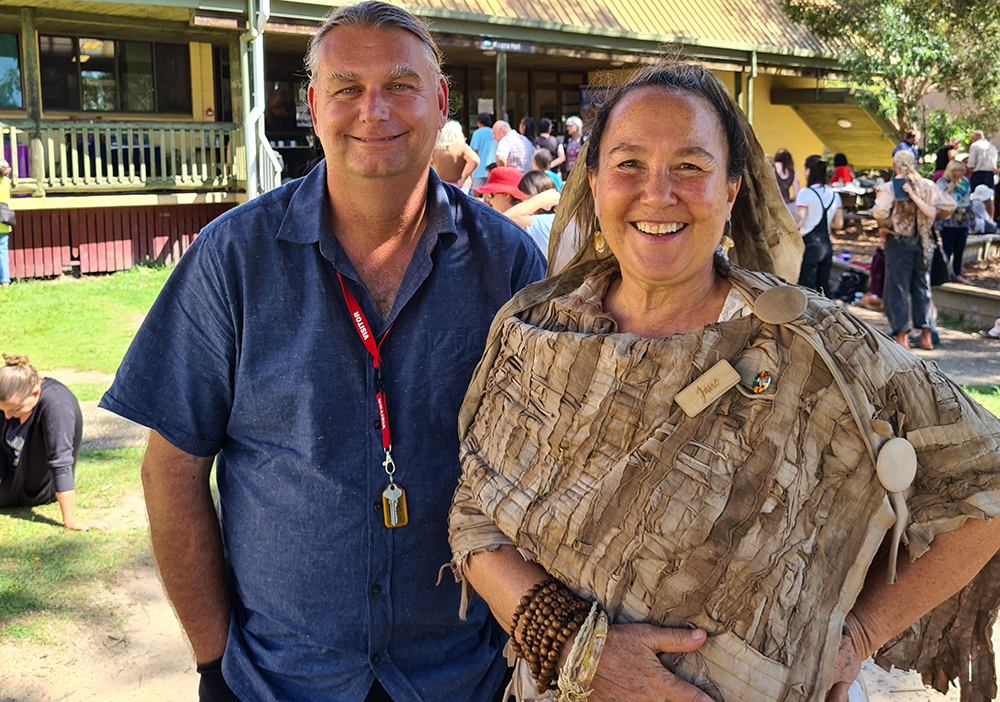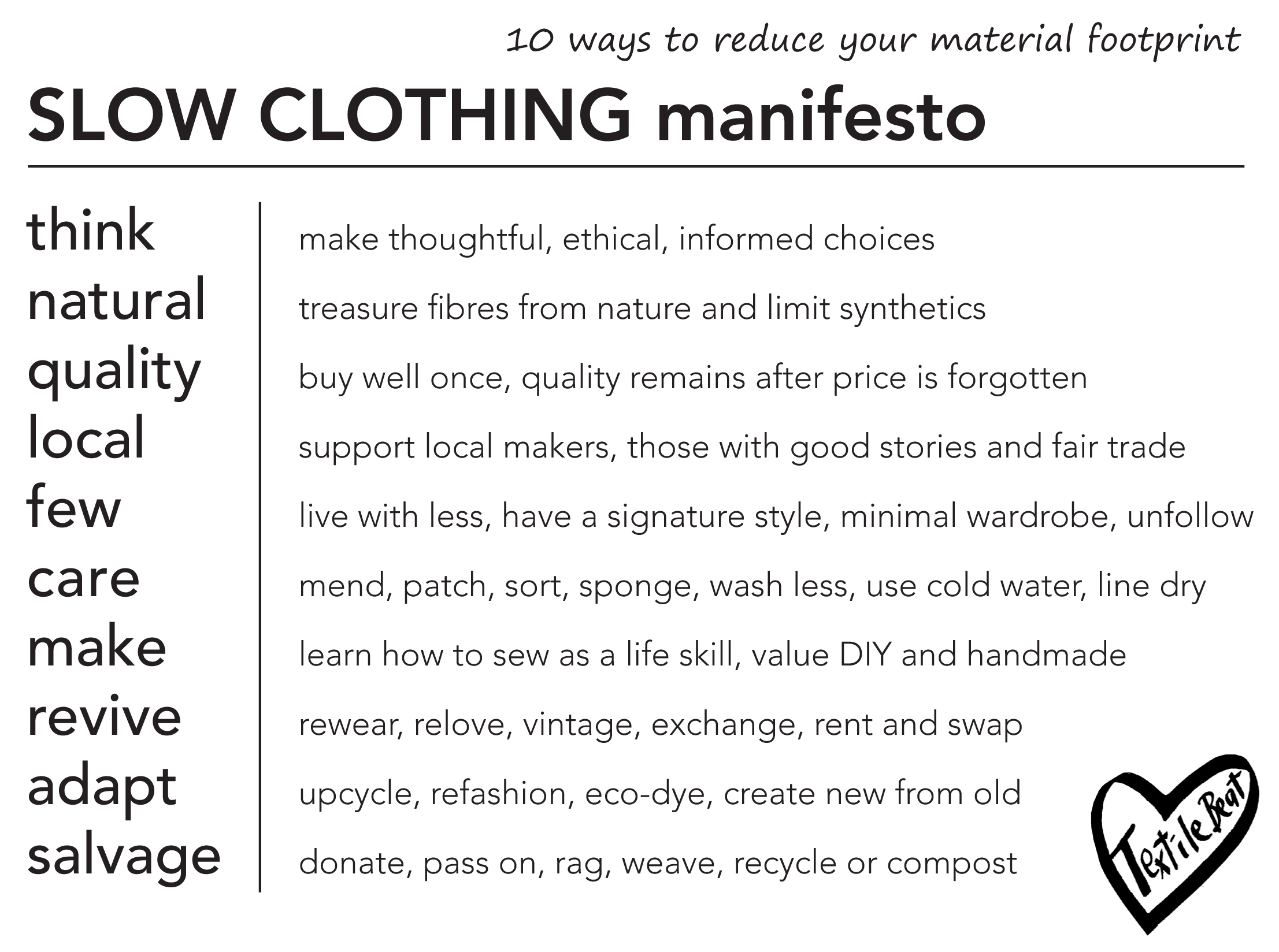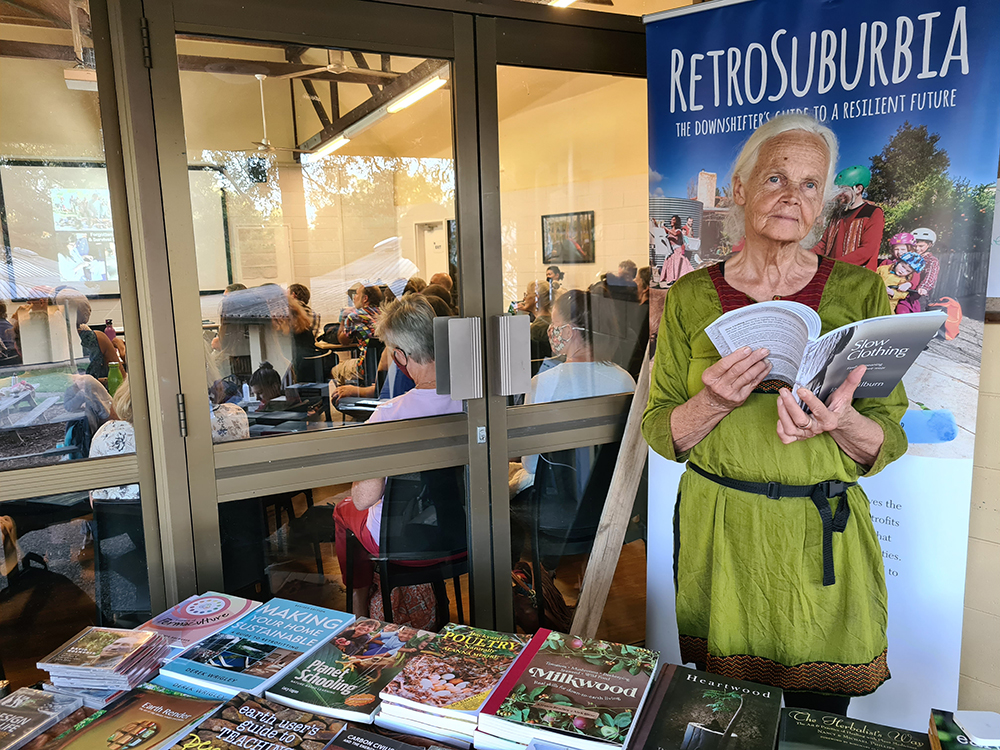Permaculture clothing is real; it is what I wear. All my wardrobe selections are natural fibres, made and mended, thrifted and repurposed, adapted to suit current needs. Produce no waste, slow and small solutions, creatively use and respond to change. Permaculture principles to live and dress by for a more permanent culture.
I was invited to present a session on Permaculture your Wardrobe at the 2021 Australasian Permaculture Convergence and delighted to have my work described there by permaculture leader Robin Clayfield as a ‘new edge’. Also delighted to recently chat with global permaculture ambassador Morag Gamble on her podcast Sense-making in a changing world.

Michael Wardle of Savour Soils Permaculture and Jane Milburn at the 2021 Australasian Permaculture Convergence
Dressing is integral to life. Skin is our largest organ and we can think about clothes doing for us on the outside what food does inside. They protect and warm our bodies, and influence the way we feel and present to the world. And dressing is an agricultural act, if we want to wear natural fibres rather than plastic fibres.
Permaculture is an endless design process for living alongside nature in regenerative, resilient and bountiful ways. Although I’ve known about permaculture for decades, I recently did a Permaculture Design Course and Teaching Permaculture Teachers course at Northey Street City Farm. This affirmed the ethics and principles that I’ve applied through my slow clothing work for the past decade. Permaculture applies to clothes, equally as it does to gardens and society.
After studying Agricultural Science and a career in rural journalism, I noticed fashion excess in 2011 when I was working full-time as a communications manager. Postgraduate leadership study then led me to set up Textile Beat as a platform to advocate for behavior change, write my book Slow Clothing: finding meaning in what we wear published in 2017 and be awarded a Churchill Fellowship in 2019.
Slow Clothing presents a compelling case for why we need to change the way we dress, to live lightly on Earth through the everyday practice of how we wear and care for our clothes. It was launched by influential voices for change: in Sydney by Craig Reucassel; in Melbourne by Costa Georgiadis and in Canberra by Richard Denniss.
Although there is definitely more awareness now about the environmental and ethical issues of what we wear, sustainability spin is in overdrive and the ever-increasing volume of fashion production and consumption is the elephant in the room.
Permaculture clothing is about dressing for health and wellbeing, in keeping with the ethics of earth care, people care and fair share. The 10 ways to can do that reduce our material footprint are described in the Slow Clothing Manifesto: think, natural, quality, local, few, care, make, revive, adapt and salvage.

These actions are in line with Living Simply, which is my next book currently in gestation.

Su Dennett at the Holmgren Books store during the 2021 Australasian Permculture Convergence in Queensland.